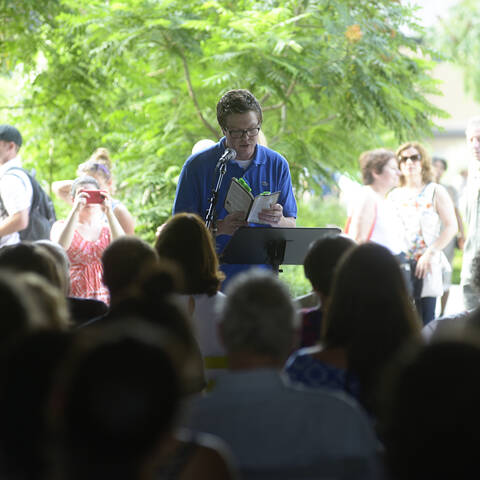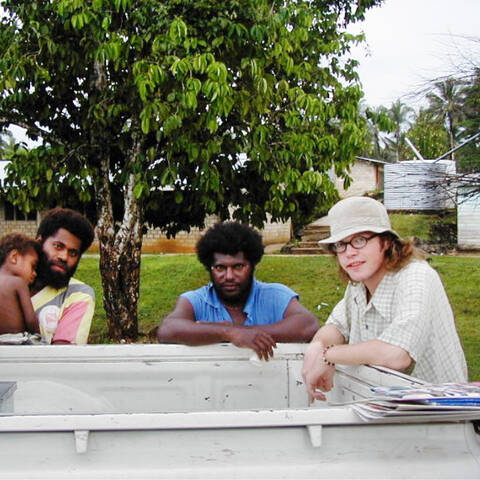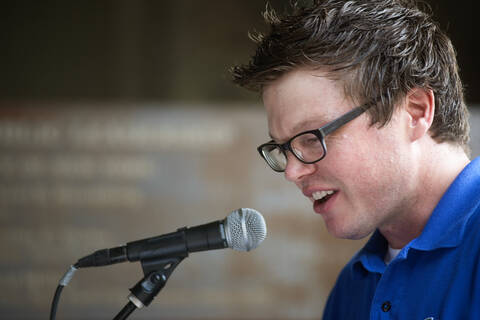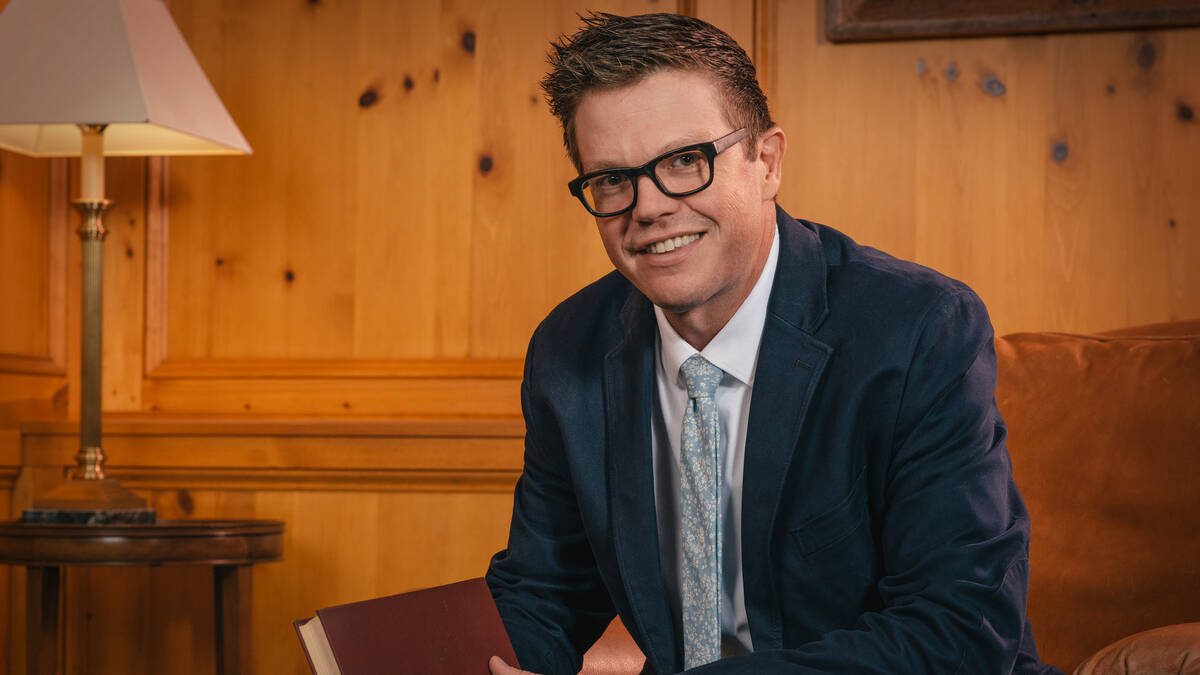Beyond Giving Back
Poetry
Poet Matt Rasmussen has experienced Gustavus from both sides of the classroom, as a student and now as a professor. “I think the community at Gustavus is incredibly inspiring and encouraging,” he says. “The students and colleagues that surround me are some of the brightest and most creative people I’ve ever met.”
It was while attending Gustavus and then the Peace Corps that Matt decided to dedicate his life’s work to poetry. “While at Gustavus as a student, I decided to enter the Peace Corps because I felt I had led an extremely privileged life and wanted, in some small way, to ‘give back’ something of what I had been given, at least in terms of education, by volunteering to teach others,” he says. Little did he know that his year in Papua New Guinea wouldn’t be about giving back in the way he imagined. “It was more of me realizing how the majority of the world lives. The experience changed how I view the world but also how I see myself within it.”
“The students and colleagues that surround me are some of the brightest and most creative people I’ve ever met.”
His debut full-length poetry collection, Black Aperture, won the Walt Whitman Award, the Minnesota Book Award for Poetry, and was a finalist for the National Book Award. “I search for the moments, thoughts, images, and emotions that might make their way into my poems,” he says. “I’m constantly viewing the world through the lens of future poems, recording what I can and imagining what might be possible. I’m also constantly reimagining the world in the wake of what I read, so I’m not just an antenna looking for secret frequencies, but also a record replaying what’s been etched into me.”
Matt notes that one thing that sets Gustavus students apart is their concern with the wellbeing of their fellow humans. “Many of my students are deeply moved by reading and responding to each other’s stories and poems as well as the published stories and poems we read from around the world,” he says. “I’d like to believe they carry those classroom experiences out into the world where they encounter not only moving but difficult and challenging ‘stories’ as well, stories that may not always align with preconceived notions or dominant narratives.” He believes Gustavus Adolphus College stands apart from other small liberal arts schools because it encourages students, who were once him, to reach outside the Gustavus community and learn from experiences not related to classrooms, books, or essay assignments.



From Elegy in X Parts
X.
Kafka said, A book
must be an axe
for the frozen sea
inside us, which sounds
great, but what good
is an axe against
a frozen sea?
Perhaps this is why
he said, while dying,
Destroy everything.
There is little comfort
in knowing there
are worse undertakings
than killing yourself.
Is it dangerous
to say these things?
I don’t think so.
Or I do. Either way,
don’t believe me.
There is no refuge
from yourself.
